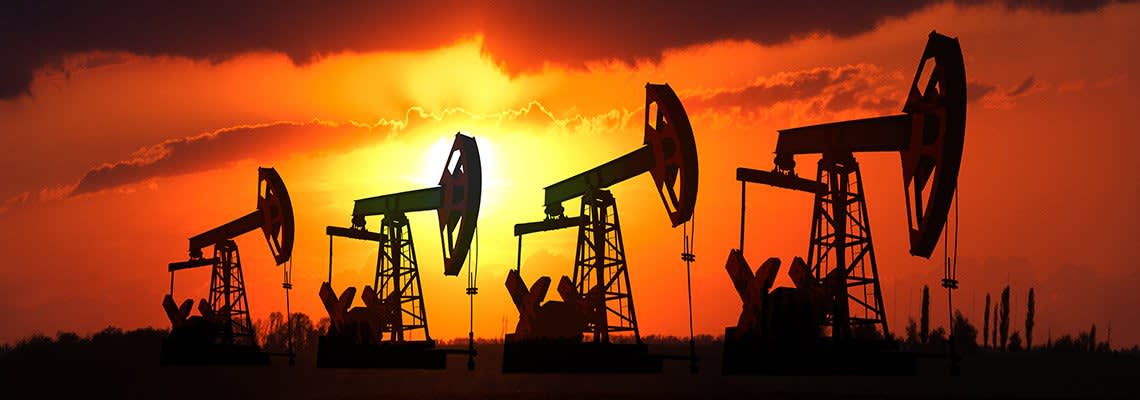
OILFIELD ACCIDENTS IN
TEXAS AND YOUR RIGHTS
The International Association of Oil and Gas Producers (IOGP) reports a drop in work-related fatalities from 20 in 2019 to 14 in 2020, but some of that was due to reduced work hours because of the pandemic. Companies belonging to the IOGP reported 15,631 workdays lost through injuries.
Statistics may be improving, but working in an oilfield, and in the oil and gas extraction industry in general, is a dangerous occupation.
If you’ve been injured in a workplace accident, especially if related to the oil and gas extraction industry, in or around Houston, Texas, Southeast New Mexico, or anywhere in those two states, contact The Fostel Law Firm, PLLC. I am a personal injury attorney familiar with and experienced in the intricacies of the laws governing the oil and gas extraction industry.
Workplace Safety Laws and Regulations
The Occupational Safety and Health Administration (OSHA) regulates oil and gas well drilling operations specifically with its code found at 29 CFR 1926, which covers site preparation, including activities such as leveling the site, trenching, and excavation.
The other way OSHA regulates the industry is through its General Duty Clause, which requires employers to provide workers with a safe workplace that does not have any recognized hazards that cause or are likely to cause death or serious injury.
General industry standards also apply, including regulations concerning stairways, scaffolding, fall protection and falling object protection, exit routes, confined spaces, noise, flammable liquids, and many more.
The U.S. Environmental Protection Agency (EPA) also sets and enforces standards on air and water quality applicable to the oil and gas industry.
Oil and gas production in Texas is governed by the Texas Railroad Commission through its Oil and Gas Division. By law, the division’s primary role is to:
Prevent waste of the state's natural resources
Protect the correlative rights of different interest owners
Prevent pollution, and
Provide safety in matters such as hydrogen sulfide
When it comes to oil rigs, the Merchant Marine Act of 1920, commonly referred to as The Jones Act, may provide added protection. The Jones Act primarily concerns maritime workers on seagoing vessels, but it can be extended to oil rigs if they are a jack-up rig or another type of mobile rig. If the rig is stationary, then the Longshore and Harbor Workers Compensation Act (LHWCA) applies.
Both the Jones Act and LHWCA allow seamen and dockworkers to pursue a claim against their employer if they are injured through negligence.
Common Workplace Injuries
In the report compiled by the IOGP, the most common workplace injuries in the oil and gas extraction industry were slips and trips and “caught in, under, or between (excluding dropped objects)." Each accounted for 99 injuries in 2020, or 18 percent of the total each.
Other factors leading to workplace injuries include poor training, non-adherence to OSHA safety standards, and equipment malfunctioning. In the extraction industry, maintaining safe pressure levels on rigs and pumps is extremely vital. If pressures are not kept under control, an oil rig explosion can result.
In general, OSHA lists the most common workplace injuries as:
Slips and falls
Struck by moving object
Struck against stationary objects
Overexertion
Repetitive motion injuries
Electrocution
Entanglement
Motor vehicle accidents
What to Do If You’re Injured
If you’re injured in a workplace accident, your first concern should be your own health and welfare. If you need medical attention, seek it immediately. Don’t dismiss your injury as minor. Injuries have a way of getting worse over time.
The other essential requirement is to report the injury/accident to your supervisor or employer. Also, as soon as you have a chance, record or write down every detail of what happened. You may well need this in pursuing your claim. And, of course, consult an attorney immediately to explore your best options for compensation.
Filing a Claim
Filing a claim depends on a variety of factors, including where the injury occurred. The Jones Act or LHWCA may apply if you’re on an oil rig. If you’re on an extraction site, you may have either a workers’ compensation claim or a personal injury lawsuit against a third party. A personal injury lawsuit is possible if a defect or malfunction in the equipment you were using caused your injury.
Let Me Protect Your Rights
As you can see, even determining where to seek compensation for your injury can be confusing, and there may be more than one source of compensation available, especially if machinery is involved. That’s why you need to consult with me. I’ve dealt with workplace injuries and claims for compensation for the past 20 years for clients throughout Texas and New Mexico.
If you’ve been injured in an oilfield accident, or in any other line of work, and you’re in West Texas or Southeast New Mexico, contact me immediately at The Fostel Law Firm, PLLC.
